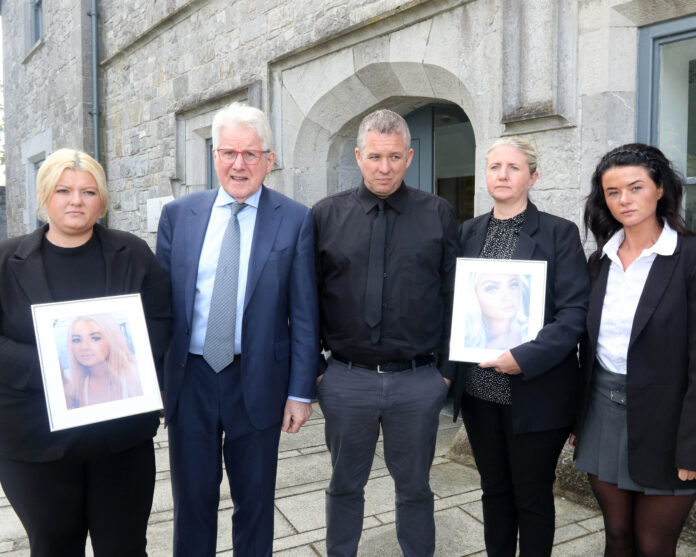
THE PARENTS of Aoife Johnston said at the conclusion last week of the inquest into her death that they do not want her to be remembered “as the girl who died on a hospital trolley”, but as “a happy, easy-going, happy-go-lucky girl who went to school and did summer jobs”.
The family also wanted the truth about the horrors they witnessed in the emergency department (ED) at University Hospital Limerick, where Aoife, died to be exposed.
The family’s solicitor, Damien Tansey, said the inquest was “the only public enquiry the family would ever have” into Aoife’s death, one they fought hard for to be heard in a public forum to expose the awful truth.
In an interview with RTÉ’s Morning Ireland, Mr Tansey said that there are a number of civil actions in train relating to Aoife’s death, which had been put on hold in order for the public inquest to go ahead.
“Her family wanted answers and they got those answers in the public enquiry from the 23 witnesses,” he said.
The inquest heard that antibiotics which could have saved Aoife were readily available, but because UHL was so short-staffed and overcrowded with patients, staff were delayed in giving them to her. Her brain swelled and she never recovered.
Dr Jim Gray, who was the only ED consultant on call that weekend, but who was not required to be on site, told the inquest that not only was the ED a “death trap” on the night Aoife died, “it is still a death trap” five years later.
“Aoife Johnston had no chance,” he told the coroner.
In her touching tribute to Aoife outside the court, Carol Johnston said Aoife was always a “good kid”.
“I know every parent says it, but she was no hassle to me and her dad, she was a good kid, and, as James would say, she was a cool kid,” she said, welling up.
Their message specifically to Taoiseach Simon Harris and Health Minister Stephen Donnelly was that a government decision in 2009 to close three 24-hour emergency departments in the region and funnel them to Limerick should be reversed.
When asked if the EDs in Ennis, Nenagh, and St John’s hospitals should be reopened, they replied: “Yes, 100 per cent, definitely.”
“Aoife is gone now, so all of the apologies and anything they put in place now isn’t going to (bring her back), it’s not going to change that.”
HSE CEO Bernard Gloster apologised to Ms Johnston’s family, saying the health service “failed” her.
“Our failure led to her death and we failed them as a family”, he said.
In an interview with RTÉ, he added that he “fully accepted” the verdict of medical misadventure returned by the coroner.
Mr Gloster said he would not question evidence given about events on the night. However, he took issue with the statement about UHL’s emergency department being a “death trap”, saying that the department is “much more safe now” – despite the fact that there is still overcrowding there.
He said the number of junior doctors in the department since Aoife died has gone from 26 to 47, while the number of emergency consultants has gone from 10 to 15. He said nurse staffing levels have also increased.
Members of the Mid West Hospital Campaign, vocal advocates in the fight to have the St John’s, Ennis, and Nenagh EDs reopened, sent “sincere and heartfelt condolences to the Johnston family on the loss of their daughter and sister, Aoife”.
“We would like to thank both the Johnston family and their legal team for their sterling work in exposing the reality forced on the many thousands who visit UHL ED every week,” the campaign said in a statement.
With additional reporting by David Raleigh.


